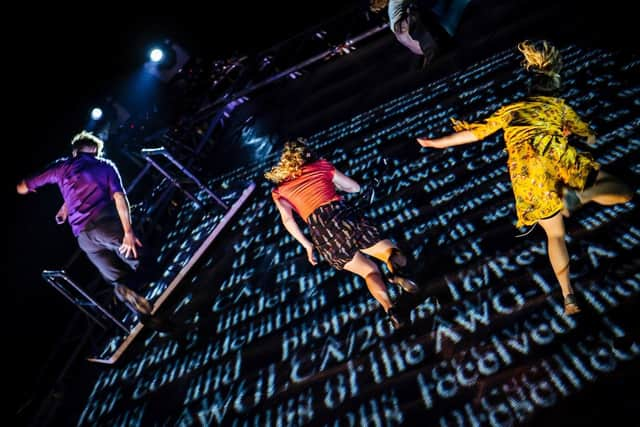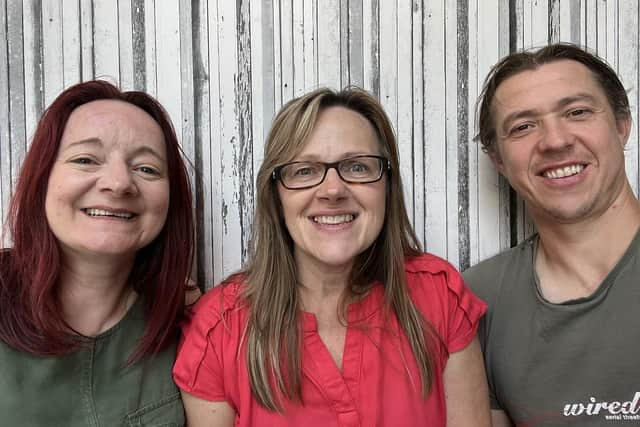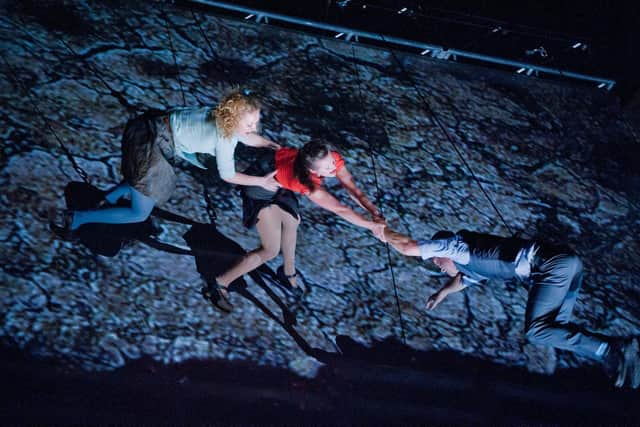Lancaster University team helps acclaimed theatre group which worked with Lady Gaga, Pink and The Chemical Brothers in springboard to sustainable recovery
and live on Freeview channel 276
Since it was founded 20 years ago, Wired Aerial Theatre has garnered international acclaim for its signature bungee-assisted dance productions and has worked with stars such as Lady Gaga, Pink and The Chemical Brothers.
Founders Wendy Hesketh-Ogilvie and Jamie Ogilvie have built a reputation as the experts in aerial consultation and innovators of an aerial technique, which fuses contemporary dance, physical theatre, aerial performance, gymnastics and climbing.
Advertisement
Hide AdAdvertisement
Hide AdTheir shows have tackled issues like mental health and climate change, and have mesmerised crowds all over the world.


But Covid and lockdown plunged the company into crisis and it was forced to make cuts to survive, reducing its core staff from seven to three, and giving up its rehearsal space and offices in Liverpool.
Wired used the experience to address issues the performing arts sector, like all industries, are under extreme pressure to tackle - the environmental impact of what it takes to produce and tour a show.
Wired capitalised on the fully-funded support from the Low Carbon Eco-Innovatory (LCEI), a business support programme which gives small organisations and charities free access to world-leading academic expertise and cutting-edge resources.
Advertisement
Hide AdAdvertisement
Hide AdLancaster University, one of the delivery partners of the scheme, provided Wired with student interns to help research, evaluate and benchmark their greenhouse gas emissions by reviewing the environmental impact of their rehearsal space and international touring productions.


Wired is using the insights to rebuild the organisation, putting efficient use of resources, sustainable delivery of its unique show and collaboration at the heart of its recovery.
Jamie Ogilvie, Wired’s founder and technical director, said: “Without any income and an uncertain future our core funding couldn’t sustain us, and we had to make some difficult decisions. But we survived, and now it has given us the opportunity to reset as an organisation.”
Actions like home working and sharing rehearsal space has reduced energy use from pre-pandemic levels by 94%. Reusing set equipment and costumes, and deploying digital approaches to its work, the amount of CO2e generated by waste has halved.
Advertisement
Hide AdAdvertisement
Hide AdWired has also taken steps towards reducing the carbon footprint of travel and accommodation, almost eliminating the use of high carbon rated hotels in favour of house shares and rentals.


“While things are starting to return to a level of normality again, we cannot go back to the way things were," Jamie explained.
“There is a substantial amount of work to be done, but we have a plan, thanks to LCEI, and have taken that important first step.”
Wired is one of 24 companies that have so far collaborated with Lancaster University as part of LCEI with a variety of aims such as testing a new product, delivering market research, reviewing a business process or analysing the carbon footprint.
Advertisement
Hide AdAdvertisement
Hide AdCollectively, these businesses have saved more than 170 tonnes of greenhouse gases – more than two-thirds of the programme’s target. And with up to 25 fully funded internship projects available to the next batch of sustainability-driven SMEs, more is to come.